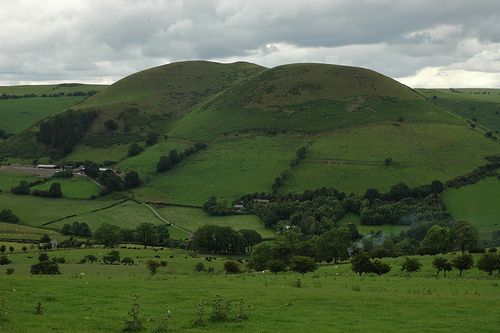2 October 2013
Despite the adoption of a historic political agreement in June between the European Parliamentand Council of Ministers on a large amount of the current Common Agricultural Policy (CAP) Reform proposals a lack of agreement on a small number of key elements had left the agreement hanging in the balance.
The Council had been reluctant to re-negotiate with the Parliament some elements of the new CAP regulations which had been discussed and agreed by Heads of State and Government during the arduous EU budget negotiations. However following the Lisbon Treaty, the European Parliament has an equal say on the outcome of the CAP reforms for the first time (through the co-decision procedure) and was reluctant to allow the Council to take any elements of the CAP reform package off the negotiation table. In recent weeks the Parliament has even gone as far as threatening to vote down the entire previously agreed proposals at a meeting of the Agriculture Council if further concessions weren’t made. To the relief of many stakeholders during the final negotiation sessions between the two institutions late on the evening of 24 September an agreement was reached paving the way for the new reform proposals to implemented fully by Member States and Regions from 2015. What will the final agreement mean for Wales? The changes agreed to the CAP will have significant implications for the way in which support to farms and rural areas is delivered in Wales. Key amongst these is that Member States and Regions have been provided with a large amount of flexibility to tailor the requirements of the policy to their territories. This means that over the next twelve months the Welsh Government will need to make a number of decisions about how it wishes to see the policy implemented in Wales. These decisions include:
- What mechanism it will choose for the compulsory move from a historic model to an area based model for distributing direct payments.
- How the compulsory greening requirements for direct payments to farmers will be implemented in Wales and what effect this will have on the delivery of its existing agri-environment scheme Glastir.
- Whether it wants to use the options provided to it to implement a small farmers scheme, a top-up payment for the first hectares of a farm, coupled support, additional capping of payments beyond compulsory requirements and whether it wants to expand on the active farmer definition.
- Whether it wants to transfer some funds from pillar one - direct payments to farmers, to pillar two - rural development and what its priorities for the new rural development plan are.
The Welsh Government has already issued a consultation addressing some of these issues and will have to take decisions within sufficient time to allow new payment systems to be in place by 1 January 2015. How much money will Wales get? The amount of money that Wales will receive from the next round of CAP funds has yet to be agreed. Whilst indicative figures for the UK have been published (€17.8 billion for pillar one direct payments and €1.84 billion for pillar two) the UK Government and Devolved Administrations have yet to reach an agreement on how this will be divided between them. It is likely that this decision will be influenced by the wider political context in the UK and particularly the referendum on Scottish Independence. Next Steps Now that a political agreement on the CAP reform has been agreed discussions on many of the technical implementation issues and regulations will begin in earnest. It is likely to be Spring 2014 before we have a clear picture on how the new requirements will operate on the ground. In addition, due to the length of the negotiation process to date, next year will now become a transitional year and not the first year of implementation as originally hoped. This means that the EU institutions need to agree on a package of transitional measures for next year. Discussions on these measures have begun and will continue to the end of the year. Article by Nia Seaton







